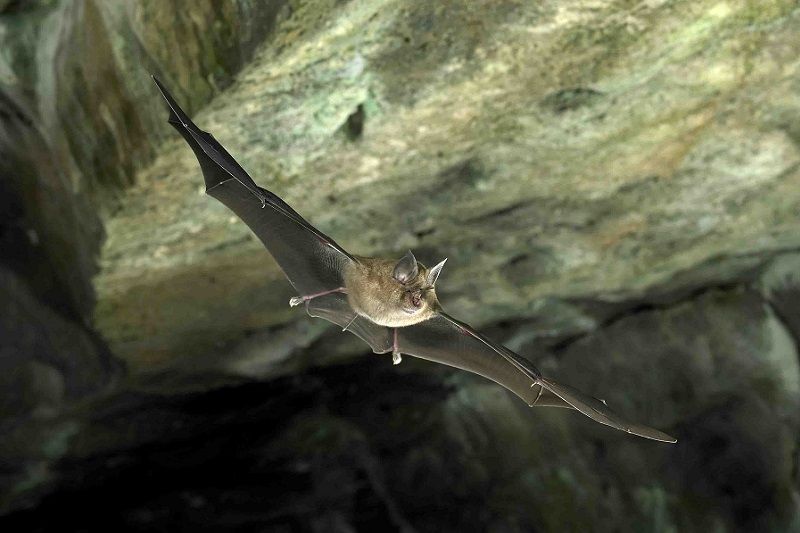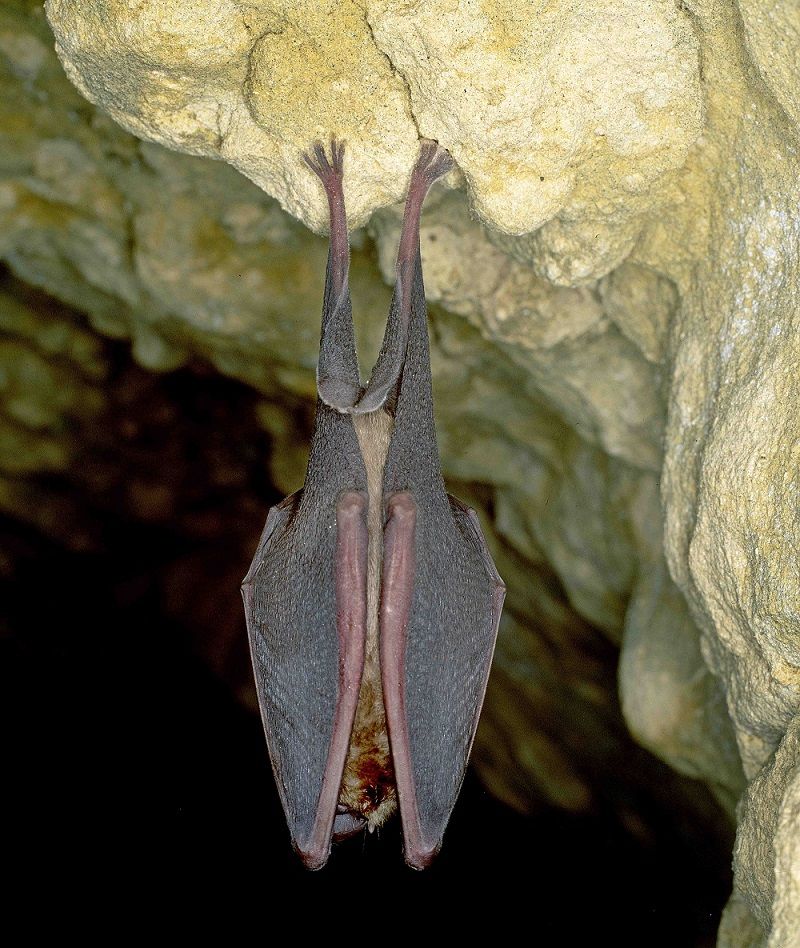Saving greater horseshoe bats in Sussex

The greater horseshoe bat is one of the rarest of Britain’s 18 bat species
Funding for this project has now finished
Greater horseshoe bats are rare in the UK. They’re found mostly in the southwest and southern Wales. Their numbers are thought to have plummeted from about 300,000 at the turn of the last century to just 9,000 today. They historically made their homes in caves all year round, but their summer roosting habits have changed due to shifts in the climate and an expanding human population. Nowadays, during the summer, they tend to roost in barns and other undisturbed pre- or early Victorian buildings such as coach houses and other outbuildings. Unlike most other bats, horseshoes hang – vampire style – from their feet, with their wings wrapped tightly around them.
Here at PTES, we’re delighted that our friends at mammal conservation charity, Vincent Wildlife Trust (VWT), have found and are protecting a new greater horseshoe bat roost miles from their stronghold, in West Sussex. Together, with the Sussex Bat Group (SBG), VWT has bought an old building to protect this newly found breeding colony. PTES is delighted to have given a generous contribution to help save the home of this pioneering breeding colony of bats. The site is 100km east of the bats’ current stronghold in Devon and Dorset – an enormously encouraging sign for a bat that suffered an estimated 90% decline in Britain in the 19th century.
This is a site we must protect
Together with VWT and SBG, we’re working hard to safeguard this rare bat species by purchasing and restoring this roost site in Sussex. This small colony of greater horseshoe bats has chosen to roost in a classic example of a stone-built Victorian stable block. The previous owners were keen to see the stables pass into the hands of a conservation body to help keep the bats safe. The building was in urgent need of repair and still requires some renovation works and enhancements to make this roost site perfect for the bats.
Who owns the property?
The property is owned and managed by VWT, which has unparalleled experience looking after and managing horseshoe bat roost sites. VWT is a national wildlife charity which already manages more than 30 reserves for greater and lesser horseshoe bats in Britain and Ireland. So we know the bats are in safe hands. Sussex Bat Group members are also involved, in helping to monitor and manage the site.
On the road to recovery
The greater horseshoe bat is one of the rarest of Britain’s 18 bat species. It’s estimated that our greater horseshoe bat population fell by over 90% during the last century, with the species becoming confined to parts of Wales and southwest England. Today, there’s much-needed good news. With legal protection and huge conservation efforts, by VWT in particular, the number of greater horseshoe bats is increasing. Since the 1980s, there’s been an increase in their numbers, from a low of around 4,000. And their range is spreading, with small colonies now found outside of their core area. This includes the new pioneer breeding colony discovered in West Sussex − a sign of a possible eastward spread and real cause for optimism.
We hope protecting this roost will help provide a wider, more robust stronghold for this threatened species, expanding their range and helping their recovery across the country.
Thank you to everyone who donated to help protect these bats and their roost. Read the final story on this project:

